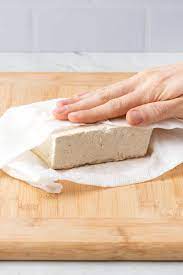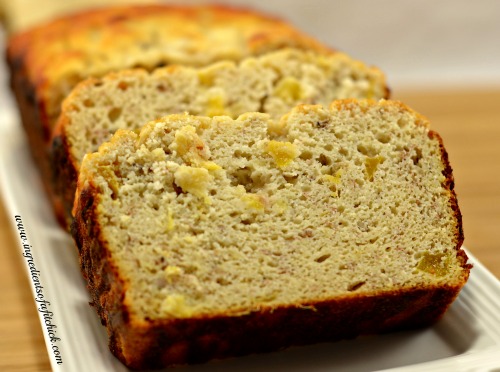Learn the Step-by-Step Guide on Pressing Tofu for Perfect Texture and Flavor Every Time
Tofu is a versatile and nutritious protein source that can be used in a variety of dishes. However, one of the most important steps to achieving a delicious tofu dish is pressing the tofu. Pressing tofu removes excess water from the tofu block, allowing it to absorb marinades and seasonings better, and resulting in a firmer texture and improved flavor.
Pressing tofu may seem like an extra step, but it is well worth the effort. Whether you are a seasoned tofu enthusiast or just starting to experiment with this plant-based protein, learning how to press tofu will elevate your cooking skills and open up a world of delicious possibilities.
The process of pressing tofu is simple. All you need is a block of tofu, a few basic kitchen tools, and a little bit of patience. In this article, we will guide you through the steps of pressing tofu, and share tips and tricks to help you achieve perfectly pressed tofu every time.
Why should you press tofu?
There are several reasons why pressing tofu is essential for creating delicious tofu dishes. First and foremost, pressing tofu removes excess water. Tofu is sold packed in water, and this water needs to be removed before cooking. Pressing tofu creates a firmer texture and prevents it from becoming mushy when cooked. It also allows the tofu to better absorb marinades and flavors, resulting in a tastier end product.
Additionally, pressing tofu helps to improve its texture. As the excess water is removed, the tofu becomes denser and more compact, making it easier to handle and cook. Pressed tofu also goes well in stir-fries, as it absorbs flavors and retains its shape better during high-heat cooking.
Now that you understand the importance of pressing tofu, let’s dive into the step-by-step process to achieve perfectly pressed tofu.
Discover the benefits of pressing tofu
Pressing tofu is an essential step in preparing it for cooking. By removing the excess water from tofu, you allow it to better absorb the flavors of marinades and sauces, ultimately enhancing the taste and texture of your dishes. Here are some benefits of pressing tofu:
| Improved texture | Pressing tofu eliminates excess water, resulting in a firmer, less mushy texture. This makes it easier to handle and prevents it from falling apart during cooking. |
| Enhanced flavor absorption | Pressing tofu helps to create a porous texture, allowing it to soak up the flavors of your marinades or sauces. This process ensures that the tofu fully absorbs the delicious tastes, making each bite more flavorful. |
| Even cooking | By pressing tofu, you ensure that it cooks evenly. Removing the excess moisture allows the tofu to brown and crisp up more easily, providing a delightful texture and preventing it from becoming too soggy. |
| Reduced cooking time | Pressing tofu helps to reduce its cooking time. With less water content, tofu requires less time to heat through and achieve the desired texture. This can be especially beneficial when you are pressed for time or want a quick meal. |
| Versatile cooking options | Pressed tofu opens up a world of possibilities in the kitchen. Its firmer texture allows you to grill, bake, fry, or sauté it without it falling apart. The versatility of pressed tofu means you can experiment with different cooking methods and create a wide range of tasty dishes. |
So, if you want to take your tofu cooking to the next level, don’t skip the pressing step. With improved texture, enhanced flavor absorption, even cooking, reduced cooking time, and versatile cooking options, you’ll be able to create delicious tofu dishes that will impress your taste buds and anyone you serve them to.
Elevate your culinary skills with pressed tofu
Are you tired of plain, flavorless tofu that never seems to absorb any marinade or sauce? If so, it’s time to learn how to press tofu and take your cooking to the next level. Pressed tofu is a game changer in the kitchen, as it becomes firm and denser, allowing it to soak up flavors and achieve a pleasing texture.
The importance of pressing tofu
Pressing tofu is a crucial step in unlocking its full potential. Tofu is naturally packed with water, which prevents it from absorbing flavors effectively. By pressing tofu, you remove excess water, creating room for the tofu to absorb marinades, sauces, and seasonings, resulting in a more flavorful dish.
How to press tofu
Pressing tofu is a simple process that requires minimal effort. Follow these steps to elevate your culinary skills:
- Start by choosing the right type of tofu. Extra-firm tofu works best for pressing, as it has a higher water content.
- Place paper towels or a clean kitchen towel on a cutting board.
- Remove the tofu from its packaging and gently pat it dry with more paper towels.
- Place the tofu on the prepared cutting board, and cover it with more paper towels.
- Place a heavy object, such as a cast-iron skillet or a stack of plates, on top of the tofu to apply pressure.
- Let the tofu press for about 30 minutes to an hour. The longer you press, the firmer the tofu will become.
- Once the tofu is pressed, it’s ready to be used in your favorite recipes!
With your newly pressed tofu, the possibilities are endless. You can marinate it, pan-fry it, bake it, or add it to stir-fries and soups. The pressed tofu will not only absorb flavors better but also have a firmer texture, making it more pleasing to the palate.
In conclusion, mastering the art of pressing tofu is a skill that will elevate your culinary creations. So give it a try and unlock a new world of flavors and textures!
Master the art of pressing tofu like a pro
Pressing tofu is a vital step in cooking with tofu that cannot be overlooked. This simple technique removes excess moisture from the tofu, allowing it to absorb flavors and achieve a firm, meat-like texture. If you want to take your tofu cooking to the next level, mastering the art of pressing tofu is a must.
Start by selecting the right tofu for pressing. Extra-firm tofu works best, as it has a denser texture and holds its shape well. Silken tofu, on the other hand, is too delicate and isn’t suitable for pressing.
To press tofu, you’ll need a tofu press or some basic kitchen tools. If you don’t have a tofu press, you can use heavy objects like books or cans to weigh down the tofu. Here’s a step-by-step guide to pressing tofu like a pro:
- Drain the tofu: Remove the tofu from its package and drain any excess liquid. Pat it dry with a paper towel.
- Cut the tofu: Slice the tofu into your desired shape and thickness. Thinner slices will absorb flavors more quickly, while thicker slices will have a meatier texture.
- Prepare the press: If you’re using a tofu press, follow the manufacturer’s instructions. If you’re using kitchen tools, place a layer of paper towels or a clean kitchen towel on a plate. Place the tofu slices on the towel, leaving space between each slice.
- Press the tofu: Place another layer of paper towels or a kitchen towel on top of the tofu. Place a heavy object, like a cast iron skillet, on top of the towels to weigh down the tofu. The weight will help squeeze out the excess moisture. Leave the tofu to press for at least 30 minutes, or up to an hour for firmer tofu.
- Check the tofu: After the pressing time is up, remove the weight and carefully unwrap the tofu. You’ll notice that the paper towels or kitchen towel have absorbed a significant amount of moisture.
Remember, the longer you press the tofu, the firmer its texture will be. Adjust the pressing time according to your recipe and personal preference.
Now that you’ve mastered the art of pressing tofu, you’re ready to take your tofu cooking to new heights. Whether you’re grilling, stir-frying, or marinating tofu, the pressed tofu will hold its shape better and absorb flavors like a sponge. So go ahead and experiment with new recipes and techniques – the possibilities are endless!
Unlock the secrets of perfectly pressed tofu
If you’re a tofu lover, you know that pressing tofu is an essential step in maximizing its flavor and texture. Pressing tofu removes excess moisture, allowing it to absorb marinades and sauces more effectively, and crisp up when cooked. But how do you achieve perfectly pressed tofu every time? Here are some tips and tricks to help you unlock the secrets:
Choose the right tofu
Not all tofu is created equal when it comes to pressing. For best results, opt for firm or extra-firm tofu. These varieties have a denser texture and will hold their shape better during the pressing process.
Invest in a tofu press
A tofu press makes the pressing process much easier and more efficient. It applies even pressure to the tofu, ensuring that it is pressed evenly from all sides. If you don’t have a tofu press, you can use a heavy object like a cast iron skillet or a stack of cookbooks to press the tofu.
Pro tip: Wrap the tofu in a clean kitchen towel or several layers of paper towels before placing it in the press or under the weight. This helps to absorb excess moisture.
Give it enough time
Pressing tofu takes time, so be patient. The longer you press it, the firmer and drier it will become. Aim to press tofu for at least 30 minutes, but if you have the time, go for an hour or more.
Remember: Pressing tofu is not a step to be rushed. Set aside enough time in your cooking schedule to allow for proper pressing.
By following these tips and tricks, you’ll be on your way to perfectly pressed tofu every time. Experiment with different marinades and cooking methods to take your tofu dishes to the next level. Happy cooking!
Experience the difference in taste and texture
Pressing tofu can completely transform its taste and texture, taking it from bland and spongy to deliciously crispy and flavorful. By removing excess liquid and pressing the tofu, you create a more compact and dense texture that allows it to absorb marinades and sauces better.
Enhanced Flavor
When tofu is properly pressed, it becomes an empty canvas ready to soak up flavors. The removal of excess water allows the tofu to absorb marinades, spices, and seasonings more effectively, resulting in a more pronounced and well-rounded taste. Whether you’re adding it to a stir-fry, salad, or sandwich, pressed tofu will bring a whole new level of flavor to your dishes.
Better Texture
Pressing tofu also significantly improves its texture. By removing excess moisture, the tofu becomes more firm and compact, allowing it to hold its shape during cooking and develop a satisfying crispness on the outside. This texture contrast is especially desirable when adding tofu to dishes like stir-fries, salads, or sandwiches, as it adds a delightful crunch that complements the other ingredients.
When you press tofu, you can achieve a texture that is similar to meat, making it a great option for those who are looking to reduce their meat consumption or follow a vegetarian or vegan diet. The dense and firm texture of pressed tofu can even make it a suitable substitute for meat in certain recipes.
So, if you’re ready to take your tofu cooking to the next level, don’t overlook the importance of pressing. It’s a simple technique that can make a world of difference in both taste and texture, elevating your dishes and giving you a whole new appreciation for this versatile ingredient.
Take your dishes to new heights with pressed tofu
If you’re looking to elevate your cooking, one ingredient that can make a big difference is pressed tofu. Pressing tofu removes excess moisture, allowing it to absorb more flavors and develop a firmer texture. By pressing tofu, you can take your dishes to new heights and create delicious, restaurant-quality meals at home.
Why press tofu?
Tofu is known for its versatility, but it often gets a bad rap for being bland and watery. Pressing tofu helps to remove some of that excess moisture, which allows the tofu to better absorb marinades, sauces, and seasonings. The result is a tofu that is packed with flavor and has a texture that holds up well when cooked.
How to press tofu
Pressing tofu is a simple process that can be done in a few easy steps:
- Start by selecting firm or extra firm tofu, as these varieties will hold up better when pressed.
- Remove the tofu from its packaging and drain any liquid.
- Place the tofu on a clean kitchen towel or a layer of paper towels.
- Wrap the tofu tightly in the towel, and place it on a plate or cutting board.
- Put a heavy object, such as a cast iron pan or a stack of books, on top of the wrapped tofu.
- Let the tofu press for at least 30 minutes, or up to a few hours depending on how firm you want it to be.
- Once pressed, unwrap the tofu and it’s ready to be cooked or marinated.
With properly pressed tofu, you can now use it in a variety of dishes. You can stir-fry it with vegetables, grill it for a smoky flavor, or bake it for a crispy texture. By taking the extra step to press your tofu, you can unlock its full potential and create truly memorable meals.
“FAQ:” How to press tofu
How can you make crispy tofu in a tofu recipe without using a tofu press?
You can achieve crispy tofu without a press by freezing tofu first, then thawing and pressing it with heavy objects like plates or books to remove excess moisture.
Is it possible to press tofu without a dedicated tofu press, and what alternative methods can be used?
Yes, you can press tofu without a tofu press. Alternatives include using heavy objects like plates or books, wrapping tofu in a kitchen towel, and placing a weight on top to squeeze out excess water.
Do you need to press all types of tofu, including firm and extra-firm tofu, in tofu recipes?
While pressing is essential for achieving certain textures, firm and extra-firm tofu can be pressed to remove excess water and enhance their ability to absorb flavors in various recipes.
How can you freeze tofu, and what benefits does freezing bring to the texture of tofu in dishes like tofu scramble or grain bowls?
To freeze tofu, simply place it in the freezer. Freezing changes the tofu’s texture, making it chewier and allowing it to absorb marinades and flavors more effectively in dishes like tofu scramble or grain bowls.
In a tofu recipe, can you share a method for making crispy tofu on a baking sheet without the need for a tofu press?
Yes, for crispy tofu without a press, freeze cubed tofu, thaw, and then press out excess water. Arrange the tofu on a baking sheet, bake until golden brown, and use it in various recipes like grain bowls or tofu scrambles.
How can you make your favorite tofu recipes without the need to press tofu extensively?
You can enjoy your favorite tofu recipes without extensive pressing by using quick and effective methods that help remove excess water from the tofu.
What is the best way to press tofu, and how does it contribute to enhancing the texture of the tofu?
The best way to press tofu involves using a tofu press or alternative methods like wrapping the tofu block in a kitchen towel, placing a heavy pan on top, and allowing it to press and drain, enhancing the tofu’s texture.
Are there specific steps to follow when using a tofu press, and how does it differ from pressing tofu without a press?
When using a tofu press, wrap the block of tofu, place it in the press, and tighten to press down evenly. Pressing without a press involves wrapping the tofu block, placing a heavy pan on top, and allowing it to drain.
How can you press tofu quickly if you don’t have a tofu press, and what household items can be used for pressing?
Pressing tofu quickly without a press involves wrapping the block of tofu, placing something heavy on top, such as a pan or books, to remove enough water and enhance its texture.
What types of tofu presses are available, and how do they differ in terms of effectiveness?
Various types of tofu presses are available, including simple designs with plates and screws, as well as more complex options. The effectiveness may vary, so choose a press that suits your preferences and needs.
Can you press tofu with a tofu press and still achieve firm and extra-firm tofu textures?
Yes, pressing tofu with a tofu press is an effective method to achieve firm and extra-firm textures, providing you with the desired consistency for different recipes.
How long does it take to press tofu using different methods, and what factors may influence the pressing time?
The time it takes to press tofu depends on the method used. Quick presses may take around 15-30 minutes, while using a dedicated tofu press might take longer. Factors such as tofu type and desired texture can influence the pressing time.
What steps should you take when preparing your tofu to ensure it holds its shape during cooking?
To ensure tofu holds its shape during cooking, press and drain it properly. Cut firm and extra-firm tofu into pieces, press and drain, and use a rimmed baking sheet or other items to hold the tofu pieces in shape.
How do different types of tofu presses contribute to removing excess water, and what is the significance of catching the liquid during pressing?
Tofu presses use various mechanisms to remove excess water, such as screws and plates. Catching the liquid during pressing prevents a mess and allows you to measure the amount of water extracted.
Can you share tips on how to store pressed tofu, and are there any precautions to take to avoid pressing too hard?
After pressing tofu, store it in the refrigerator. Be cautious not to press too hard, as it may cause the tofu to crumble. Use proper pressing techniques to remove enough water without compromising the tofu’s integrity.
How do you properly handle tofu from the packaging before preparing it for cooking or pressing?
Before preparing tofu, remove it from the packaging and drain any excess liquid. Pat it dry gently with paper towels to ensure optimal texture in your dishes.
Can you share methods to press tofu with and without a dedicated tofu press, especially when working with firm and extra-firm tofu?
Whether using a tofu press or not, wrap the tofu block in a kitchen towel and press it. For even firm and extra-firm tofu, use a press or place a heavy pan on top to effectively drain excess water.
What is a recommended way to place the tofu block before pressing and draining, ensuring consistent results?
Place the tofu block on a rimmed baking sheet or any flat surface before pressing and draining. This ensures that the liquid drains evenly, resulting in a better-textured tofu.
How can you make sure the pieces of tofu hold their shape when cooking, especially if you don’t know how to press tofu properly?
To ensure tofu pieces hold their shape, press and drain the tofu adequately before cooking. Cut firm and extra-firm tofu into pieces and use items like a rimmed baking sheet to hold their shape during the cooking process.
When preparing vegetarian recipes that involve tofu, what steps should be taken to make the tofu more flavorful and have a desirable texture?
To enhance the flavor and texture of tofu in vegetarian recipes, press and drain it properly. Thaw frozen tofu for a chewier texture, tighten the press, and remove excess water to allow the tofu to absorb marinades and flavors effectively.



